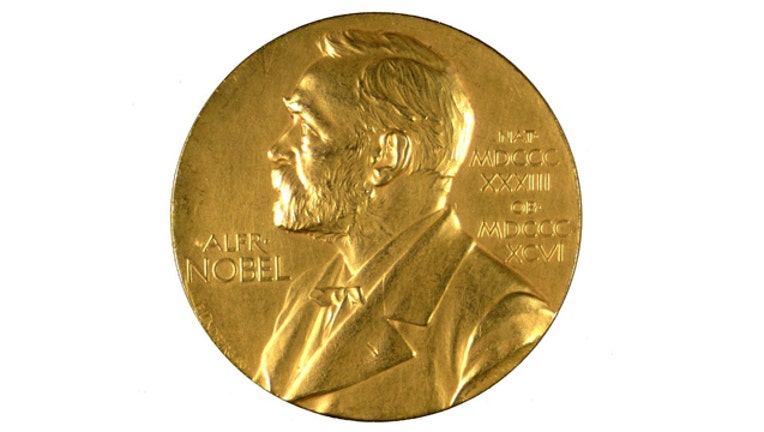Japan's Ohsumi wins Nobel for studies of cell 'self-eating'

STOCKHOLM (AP) — Japanese biologist Yoshinori Ohsumi won the Nobel Prize in medicine on Monday for discoveries on how cells break down and recycle content, a garbage disposal system that scientists hope to harness in the fight against cancer, Alzheimer's and other diseases.
The Karolinska Institute honored Ohsumi for "brilliant experiments" in the 1990s on autophagy, a phenomenon that literally means "self-eating" and describes how cells gobble up damaged content and provide building blocks for renewal.
Disrupted autophagy (aw-TAH'-fuh-jee) has been linked to several diseases including Parkinson's, diabetes and cancer, the prize committee said.
"Intense research is now ongoing to develop drugs that can target autophagy in various diseases," it said in its citation .
Ohsumi, 71, from Fukuoka, Japan, is a professor at the Tokyo Institute of Technology. In 2012, he won the Kyoto Prize, Japan's highest private award for global achievement.
"As a scientist, I'm extremely honored," Ohsumi said in a live telephone interview with Japanese broadcaster NHK.
Speaking in Japanese about his work, he said the "human body is always repeating the auto-decomposition process, or cannibalism, and there is a fine balance between formation and decomposition. That's what life is about."
Nobel committee secretary Thomas Perlmann said Ohsumi seemed surprised when he was informed he had won the Nobel Prize.
"The first thing he said was 'ahhh.' He was very, very pleased," Perlmann said.
Nobel judges often award discoveries made decades ago, to make sure they have stood the test of time.
Though scientists have known that autophagy exists for more than 50 years, its fundamental significance was only recognized after Ohsumi's "paradigm-shifting research" on yeast in the 1990s, the committee said.
"Thanks to Ohsumi and others following in his footsteps, we now know that autophagy controls important physiological functions where cellular components need to be degraded and recycled," it said.
David Rubinsztein, deputy director of the Institute for Medical Research at the University of Cambridge, said Ohsumi's discoveries have provided critical tools to study the role of autophagy in infectious diseases, cancers and neurodegenerative diseases such as from Huntington's and Parkinson's.
"Indeed, autophagy manipulation may provide a key strategy for treating some of these conditions," Rubinsztein said.
Autophagy helps explain how a cell conserves energy during times of starvation, using recycled material for survival. It can eliminate invading bacteria and viruses, contributes to embryo development and helps counteract the negative consequences of aging, the prize committee said.
"This system is a renewal station so that damaged or long-lived proteins can be recycled to be able to build new molecules, new proteins so that you can sustain your good life," Nobel committee member Juleen Zierath told The Associated Press.
It was the 107th award in the medicine category since the first Nobel Prizes were handed out in 1905.
Last year's prize was shared by three scientists who developed treatments for malaria and other tropical diseases.
The announcements continue with physics on Tuesday, chemistry on Wednesday and the Nobel Peace Prize on Friday. The economics and literature awards will be announced next week.
Each prize is worth 8 million kronor ($930,000). The awards will be handed out at prize ceremonies in Stockholm and Oslo on Dec. 10, the anniversary of prize founder Alfred Nobel's death in 1896.
___
Online:
http://www.nobelprize.org/
___
Associated Press writers Keith Moore in Stockholm, Malcolm Ritter in New York and Mari Yamaguchi in Tokyo contributed to this report.

